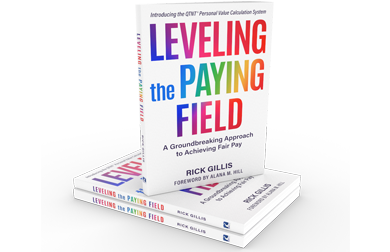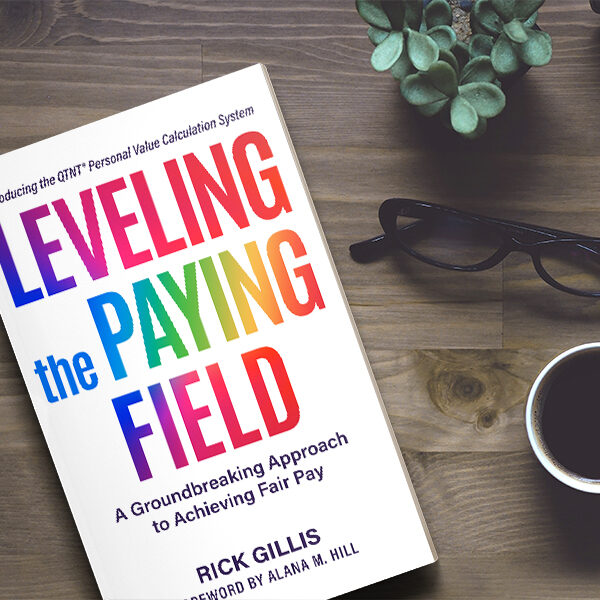Your Work Does Not Speak for Itself
In Leveling the Paying Field, author Rick Gillis has brought his 20 years of career management experience to solving one of the hardest aspects of compensation and negotiation: quantifying performance and value fairly and accurately, regardless of role or gender. Gillis provides a simple, repeatable formula as well as many examples that illustrate that quantifying value is not just for those whose work directly impacts revenue. His “Quotient” personal valuation calculations process will work for everyone, from secretaries to project managers to executives.
Excerpt CH 6: Your Work Does Not Speak for Itself
Not surprisingly, employees rarely speak the same language as employers or managers—until they become one themselves. I am referring to the language of accomplishment and performance.

Something I find interesting—as only someone who does what I do could—is that once candidates become employees and start doing their jobs, seldom if ever do they talk or think about the ways their individual efforts contribute to the overall mission or stated goals of the company. They just become a part of “the team”—which, from an employer’s point of view, is a good thing. While I support “the team” (nothing gets done without a team!), I strongly believe in an individual’s need to express the value he or she personally brings to the table.
Even senior managers who are “in the loop” and “plugged in,” and who offer well-thought-out guidance on the company’s next big initiative, rarely if ever stop to consider how the job they do individually contributes to the overall prosperity of the organization. I know this to be true. I have counseled several of them.
Then there is the certainty that, no matter your position, your boss may take credit for the work you do. This is not necessarily a slight on you or your work, or even your boss, as I address in the next chapter. It is, however, reason enough for you always to have a quantifiable performance inventory at hand and the confidence to speak up for yourself on an as-needed basis, as well as on an “irregular-regular” basis when the opportunity presents itself. Let me offer you one of my time-tested mantras: Your work does not speak for itself. You do.
Before you speak about yourself, you have to know what you’re going to say beyond the fact that you occupy a desk from eight to five, five days a week. There is nothing wrong—well, actually there is—with keeping a seat warm, but being on time does not garner the same attention (or the bonus or the promotion) as telling someone how you made a difference. How you impacted the company’s mission. How you made the company money. How you saved a bunch of bucks. This is the kind of personal value information you should have at your fingertips at all times.
WHAT AND WOW!
Success is about What and Wow! (I’ll be repeating this phrase through-out the book, so get used to it.) A narrow, dictionary-type definition of accomplishment is “something that has been done successfully.” My definition of What and Wow! incorporates this elementary definition but goes a step further. What and Wow! consists of having successfully achieved something you are proud of and then taking the time to share that success with your coworker(s) or your immediate supervisor or that senior VP you occasionally ride up the elevator with.
“What” describes what you did (duh!), while “Wow” is what you will hear from someone as you share your success(es) with them.
“Wow!” is usually followed by “How did you do that?” Wow is a good thing. You will learn a lot about your Wows in this book, as well as how to successfully share them.
What? You’re not comfortable sharing your wins? I’m not surprised. You wouldn’t be the first person I have worked with who was uncomfortable with the idea of talking about themselves, but I expect I’ll be changing your outlook as we navigate these pages together. Breathe in. Breathe out. I do not promote bragging. I do not condone boasting. On the contrary, I’m simply suggesting that appropriately sharing your personal wins could make all the difference between just being paid and being paid well. What this is about is informing others of your personal wins and explaining how the organization is also winning as a result. Bragging is bad. Informing is good. And appropriate. And professional.

